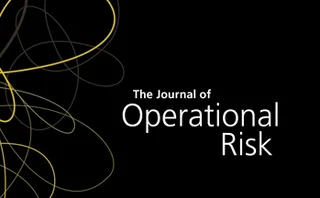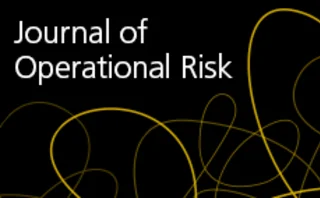Forum
Key principles for operational risk stress testing design and evaluation
The author surveys operational stress testing methods and proposes a conceptual framework for designing operational risk stress tests.</li>
Financial industry adoption of distributed ledger technologies: implications for central bank money settlement
The authors investigate the Eurosystem's exploring of central bank money settlement through distributed ledger technology and look forward to potential next steps.
“Closing the gaps: moving forward on tail risks in central clearing”: a central bank of issue perspective
The authors explain the priorities for CCP recovery and resolution from a central bank of issue perspective, focussing on structural barriers and how gaps could be overcome.
Climate risk and central counterparty risk management
In this paper, the European Association of CCP Clearing Houses discusses several aspects of climate risk, including how climate risk is currently integrated into central counterparty stress testing, the metrics within climate risk and how central…
Fighting Covid-19 in countries and operational risk in banks: similarities in risk management processes
This paper shows how banks managing operational risk and countries tackling Covid-19 could learn from each other to overcome obstacles in effectively mitigating major risks.
Credit default swap market retrospective: observations from the 2008–9 financial crisis and the onset of the Covid-19 pandemic
In this paper credit market fluctuations, measured by the levels of the main and most heavily traded index instruments, are analyzed and compared with the analogous index realizations during the 2008–9 financial crisis.
Clearing away after Brexit?
This paper analyzes, from a legal perspective, the new framework, the roles and responsibilities of the European Central Bank, ESMA and the European Commission, and the possible outcomes for UK CCPs once Brexit is complete.
The impact of culture upon operational risk management guidelines in the banking sector of selected Asian countries
The central banks of different countries regulate ORM according to the specificities of their national banking industry. This paper tests the hypothesis that such regulatory openness results in legal texts that are highly influenced by the culture of the…
Quantification of regulatory capital for management of operational risk in banks: study from an emerging market economy
This paper studies the various methodologies used by an Indian bank in its operational risk management activities: these include loss database analysis, risk control self-assessment and key risk indicator (KRI) identification.
Strategic and technology risks: the case of Co-operative Bank
This paper studies the growth by acquisition strategy embarked upon by a mid-sized UK bank, the Co-operative Bank; this strategy was a disaster, leaving a heretofore successful bank in dire trouble and on the block for buyers at a substantial discount to…
Difference between the determinants of operational risk reporting in Islamic and conventional banks: evidence from Saudi Arabia
In this study, the author investigates the operational risk reporting practices of Islamic banking institutions (IBIs) and conventional banks (CBs) in Saudi Arabia. Moreover, the author explores the joint effect of banking characteristics, corporate…
The use of business intelligence and predictive analytics in detecting and managing occupational fraud in Nigerian banks
The goal of this paper is to illustrate how Nigerian banks, and indeed banks elsewhere, can develop solutions that incorporate both BI and predictive analytics techniques in detecting, predicting, preventing and managing occupational fraud.
The operational risk disclosure practices of banks: evidence from India and Romania
This paper compares the levels of operational risk disclosure in the banking industries of India and Romania.
An alternative approach for the operational risk assessment of a new product
The aim of this paper is to provide a new operational risk management framework to identify and mitigate the operational risk exposure arising from a new product.
A review of the state of the art in quantifying operational risk
In this paper, the authors provide a comprehensive review of the different approaches developed to model operational risk, specifically focusing on the actuarial approach.
Global perspectives on operational risk management and practice: a survey by the Institute of Operational Risk (IOR) and the Center for Financial Professionals (CeFPro)
This paper presents survey results which represent comprehensive perspectives on operational risk practice, obtained from practitioners in a wide range of countries and sectors.
A linguistics approach to solving financial services standardization
In this paper, the author looks at what issues are created through linguistic variation when users of a language or languages attempt to ensure that there is a shared conceptual understanding in the financial domain.
Skin in the game
This paper analyzes the cost of putting aside capital as skin in the game (SITG).
Risk monitoring through better knowledge-based risk processes
The aim of this paper is to propose a model that describes the integration of knowledge-based risks (via the processes of knowledge-based risk identification, analysis, evaluation and education) and knowledge-based risk repositories to support risk…
Operational risk: a forgotten case study
This paper is a historical case study of the GAS scandal and is the first to analyze it from the perspective of operational risk.
One for my baby (and one more for the road): incentives, default waterfalls and central counterparty skin-in-the-game
In this paper, the authors argue that both for-profit central counterparties and their clearing members should contribute to the default waterfall, with a CCP’s two contributions coming directly before and directly after the tranche of clearing member…




